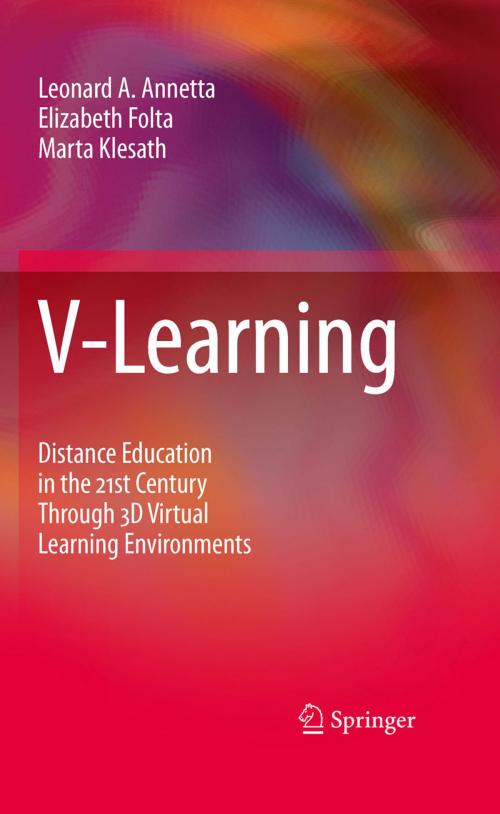V-Learning
Distance Education in the 21st Century Through 3D Virtual Learning Environments
Nonfiction, Reference & Language, Education & Teaching, Teaching, Computers & Technology, Educational Theory, Educational Psychology| Author: | Leonard A. Annetta, Elizabeth Folta, Marta Klesath | ISBN: | 9789048136278 |
| Publisher: | Springer Netherlands | Publication: | March 10, 2010 |
| Imprint: | Springer | Language: | English |
| Author: | Leonard A. Annetta, Elizabeth Folta, Marta Klesath |
| ISBN: | 9789048136278 |
| Publisher: | Springer Netherlands |
| Publication: | March 10, 2010 |
| Imprint: | Springer |
| Language: | English |
Equally grounded in the research and the practical applications developed by the authors over a number of years, this book shows how virtual learning environments could represent the future of higher education. As academics begin to use environments such as Second Life to reach a broader student audience, this volume offers the distance-learning community (administrators, faculty, and students) a different, yet successful, approach to delivering content over the Internet through 3D virtual learning environments that have the potential to transform higher education. Covering a broad spectrum of frameworks, from commercial multiplayer video games to online learning, the book shows just how powerful these environments can be in the arena of education, and concludes that data-driven practice will ensure almost universal take-up, even among those currently unwilling to use V-learning. The authors provide numerous practical examples of distance learning in its current state of development, as well as making informed predictions about how future environments might evolve. This much-needed book is right at the cutting edge of its subject, and comes at a time when research in both educational gaming and distance learning are converging.
Equally grounded in the research and the practical applications developed by the authors over a number of years, this book shows how virtual learning environments could represent the future of higher education. As academics begin to use environments such as Second Life to reach a broader student audience, this volume offers the distance-learning community (administrators, faculty, and students) a different, yet successful, approach to delivering content over the Internet through 3D virtual learning environments that have the potential to transform higher education. Covering a broad spectrum of frameworks, from commercial multiplayer video games to online learning, the book shows just how powerful these environments can be in the arena of education, and concludes that data-driven practice will ensure almost universal take-up, even among those currently unwilling to use V-learning. The authors provide numerous practical examples of distance learning in its current state of development, as well as making informed predictions about how future environments might evolve. This much-needed book is right at the cutting edge of its subject, and comes at a time when research in both educational gaming and distance learning are converging.















